Acne Treatment Services in Dayton, Ohio
Treating Facial and Body Acne for All Ages
Dr. Rishi Gandhi, a board-certified dermatologist, treating patients in Dayton, Ohio and surrounding cities, is expertly trained in treating adult and teen acne, including whiteheads and blackheads, inflammatory pimples and cystic acne.
Dr. Gandhi and his clinical team recognizes that acne comes with physical and emotional effects and he customizes his acne treatments for each patient to ensure they achieve the best results.
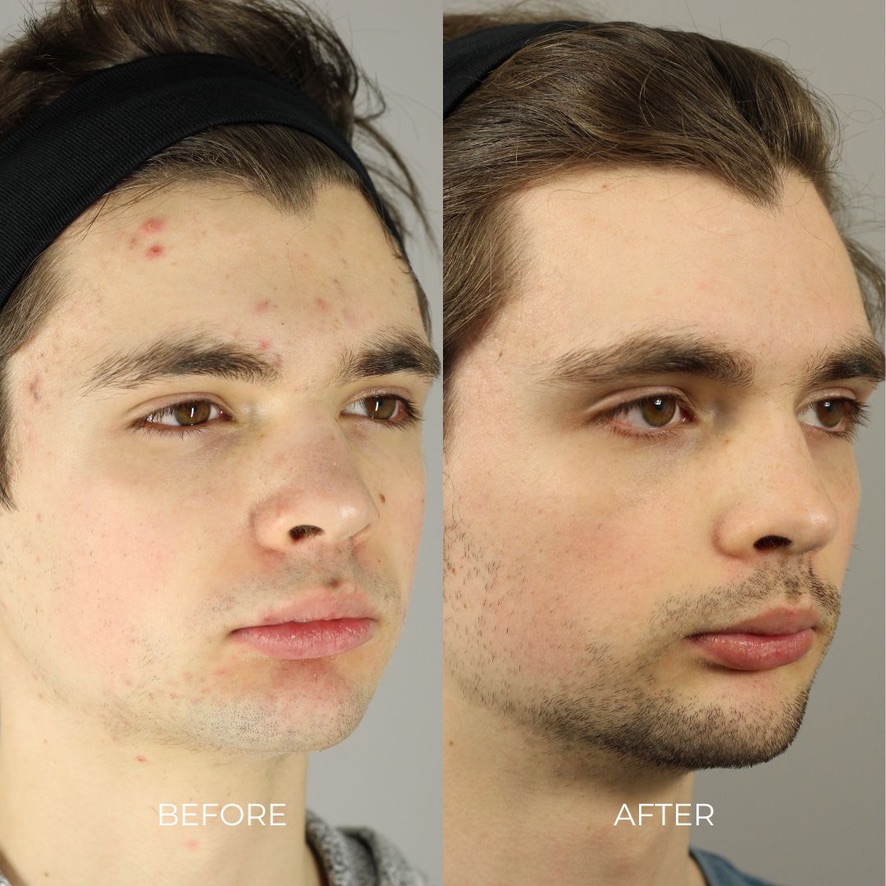
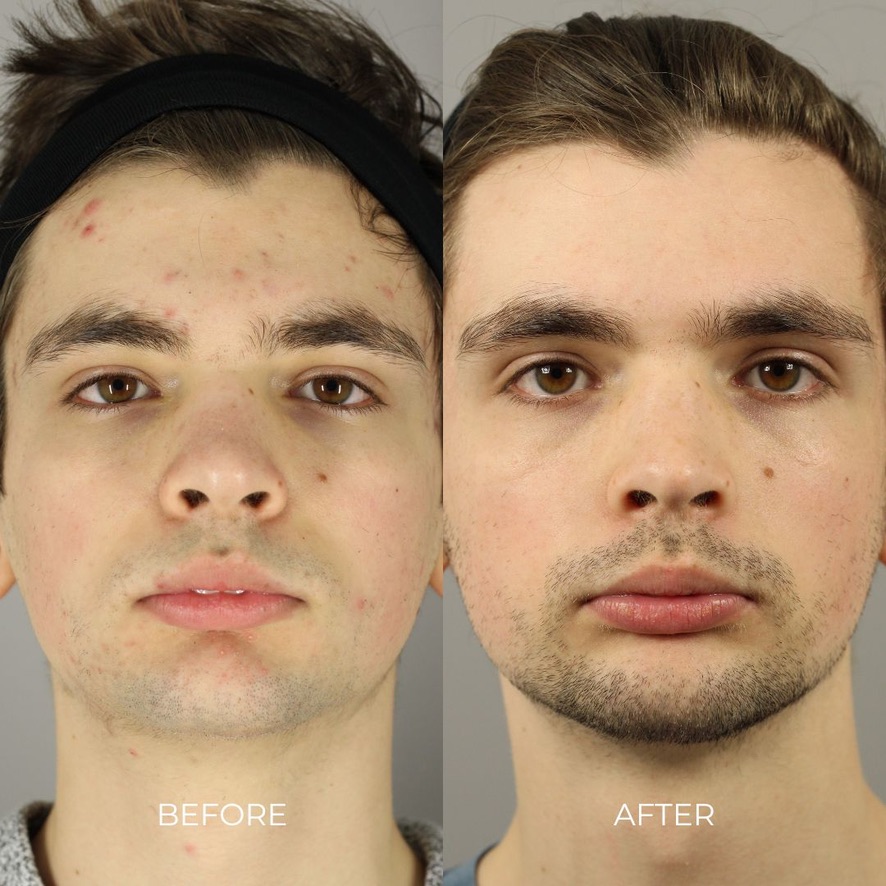
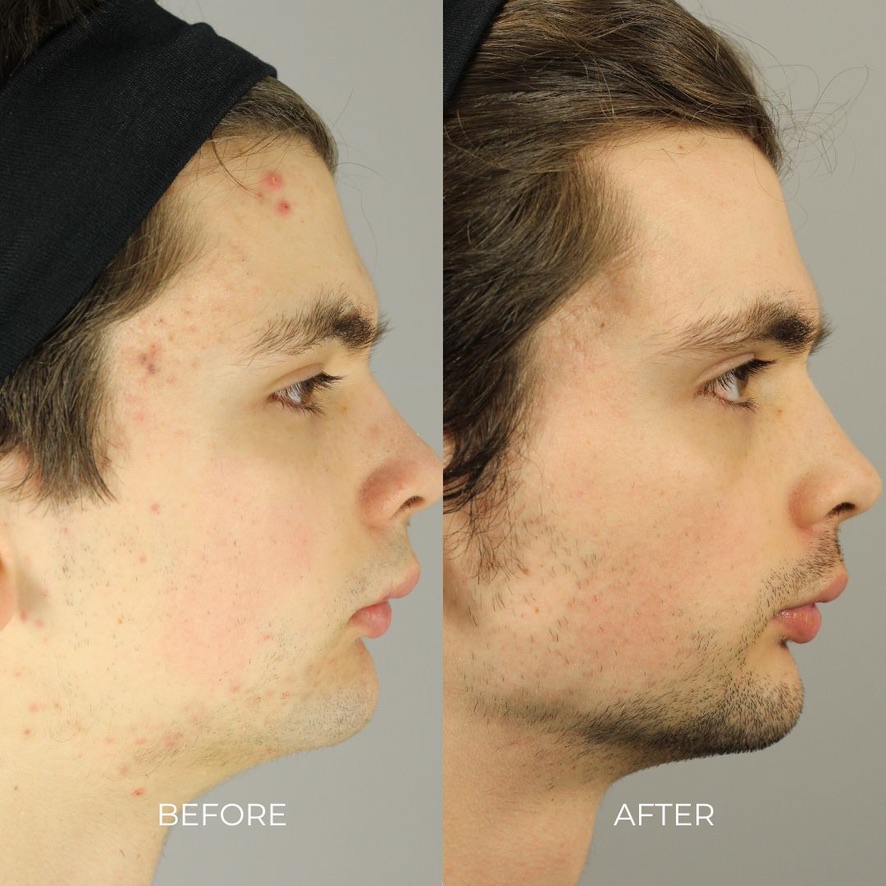
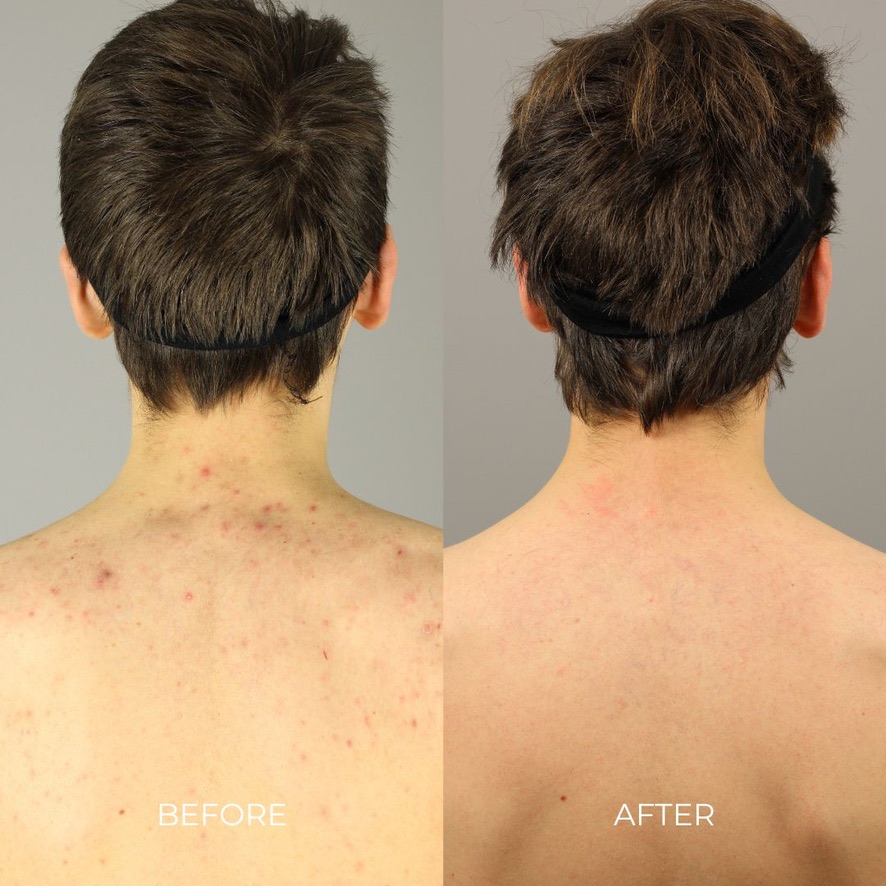
What is acne?
Acne is a common skin condition that affects 85% of people at some time in their life. It can occur in any age group —even infants get acne, but it most commonly affects teens and young adults. Acne usually clears by the mid-20s, although males and females complain of frustrating breakouts from adult acne.
Acne occurs when a pore (pilosebaceous unit) gets clogged by either dead skin cells or the overproduction of sebum, an oil our bodies produce. Our pores consist of hair follicles and an oil gland (where sebum comes from).
Acne blemishes typically appear on the face, neck, back (bacne), shoulders and chest.
The different acne lesions (pimples) are blackheads, whiteheads or more inflamed pustules and red raised bumps called papules. Cystic acne and nodules are deep, inflamed bumps that hurt and are the most likely to cause acne scarring. Learn more about our acne scar treatment in Dayton, Ohio by contacting us today.
A unique acne treatment plan for each patient
Here at the Ohio Skin Center, we know no two acne patients are the same. When you visit us at our Dayton, Ohio dermatology office, we are prepared with the most advanced treatment options to tailor an acne treatment plan specialized for your needs.
We listen attentively to each patient’s acne history and previous treatment experiences. We then provides a detailed acne treatment plan, which may include oral and/or topical medication with scheduled follow-ups to monitor progress and guide his patients every step of the way.
There are many treatment options and each has an essential role in improving and preventing future acne breakouts. Plus, some treatments work better together as a combination therapy.
Early intervention is crucial for preventing acne scarring and the emotional effects of acne.
TOPICAL MEDICATIONS FOR ACNE
Topical acne medications like retinoids can help remove dead skin cells and increase cellular turnover to stop skin cells from getting stuck and clogging pores. Benzoyl peroxide kills bacteria that are causing redness and inflammation. And they also help reduce redness, inflammation, even the skin tone.
TOPICAL MEDICATIONS
- Retinoid
- Azelaic acid
- Salicylic acid
- Glycolic acid
- Benzoyl peroxide wash
- Benzoyl peroxide topical
ORAL MEDICATIONS FOR ACNE
For acne sufferers with moderate to severe acne, dermatologists might prescribe oral medications to fight your acne’s cause from the inside out. Oral medications help treat inflammatory acne that gets aggravated by bacteria, the overproduction of sebum or hormones.
ORAL MEDICATIONS
- Oral antibiotics
- Spironolactone
- Birth control
- Isotretinoin
MEDICATION-FREE ACNE TREATMENT OPTIONS
Laser and light treatments pair well with topical and oral medications and are also a desirable option for patients who prefer to opt-out of prescription medication for one reason or another.
- Medical-grade chemical peels
- Microdermabrasion
- Microneedling
- Injections
- IPL – Intense Pulsed Light
- Laser & light treatments
Acne in skin of color, adult female acne and acne during pregnancy
We treat acne in people with darker skin tones —which tend to get dark spots, called hyperpigmentation, that stick around long after the acne is gone. We also customize treatment plans for patients with adult female acne (hormonal acne) and acne in pregnant women who must be cautious about what they use on their skin.
What causes acne?
Acne happens when there’s a problem with a hair follicle. Many factors play a role in this but what’s happening is dead skin cells and oil plug the hair follicle. Sometimes a bacteria that lives on our skin, called P.acnes, causes infection and the pimple looks red and inflamed and pus-filled.
ACNE CAUSES
- Overproduction of oil
- Dead skin cells clogging pores
- Bacterial growth in the hair follicle
COMMON CAUSES OF ACNE-PRONE SKIN
- Hormones
- Medications
- Genetics
THINGS THAT CAN MAKE ACNE WORSE
- Diet
- Environmental toxins
- UV rays from the sun
- Hygiene (under or overwashing)
- Stress
- Skincare products
- Lack of sleep
- Friction (maskne, chin strap acne, etc.)
TYPES OF ACNE
There are three main types of acne, which can range from mild, moderate to severe. Your treatment regimen factors in the kind of acne you have, how severe it is and your skin type.
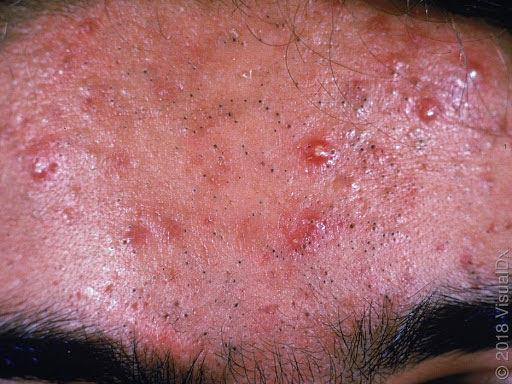
BLACKHEADS & WHITEHEADS
Non-inflammatory acne —called comedonal acne. Bumpy to the touch but doesn’t appear inflamed.
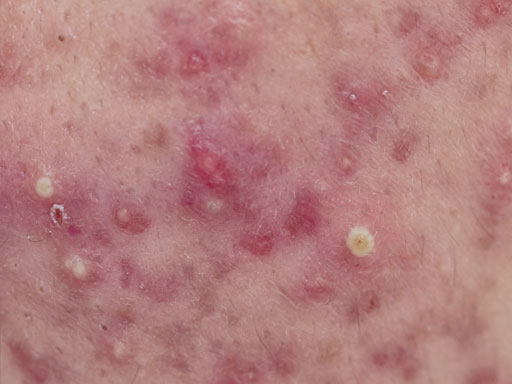
PUS-FILLED OR RED PIMPLES
Inflammatory acne —called papules and pustules. Small, red, inflamed and sometimes containing white or yellow pus.
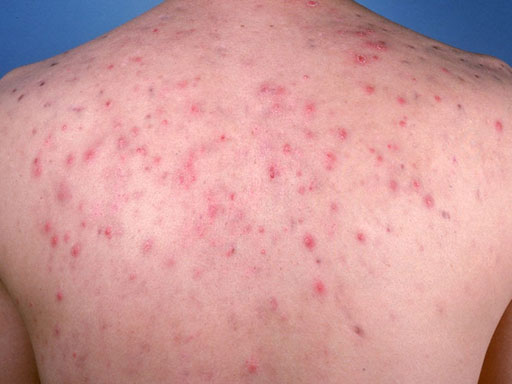
DEEP, LARGE, RED PAINFUL ACNE BUMPS
Cystic or nodular acne that is red inflamed and hurts. These acne bumps take a long time to go away and are the leading contributor to acne scarring.
